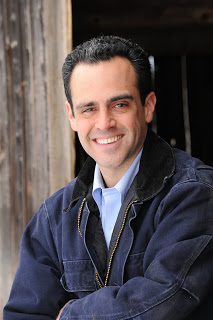
On May 16th, Matt Dunne, former Assistant Director of the Nelson A. Rockefeller Center for Public Policy at Dartmouth and Vermont State Senator, came to speak with Dartmouth undergraduate and graduate students about his current role as Head of US Community Affairs at Google. He equated his role to the role of a Director of Corporate Social Responsibility at other companies. After being appointed in 2006, Dunne has served as the community liaison for Google Inc. His primary responsibility is maintaining a positive and professional relationship between the inhabitants of towns and cities in which Google has or is creating data centers. He was hired after a particular incident in Kentucky in which Google was perceived negatively for largely taking over a town while offering little in return in the way of jobs or community improvement. What Dunne has since been successful in doing is coordinating with local officials, residents, and engineers in order to ensure that Google and its geographic partners understand each other. He also handles Community Affairs abroad, most recently on a data center in Quilicura, Chile.
Dunne spoke of his time with Google very positively. He reflected that he is able to combine many of his passions: spending time with his family by working out of his native Vermont, serving the community, and being somewhat a part of the tech world. The career advice he gave to those in attendance focused in part on being open to new opportunities, such as this position offered to him by Google executives. He also stressed that being in constant communication and having a high level of personal understanding can help handle a lot of the misunderstandings that result between large companies and small towns. Lastly, he mentioned that compromise is important – especially in the world of corporate social responsibility. While Google does not provide funds or outreach for projects in the realm of the arts, it will support local teaching initiatives with good technology (personal computers for an under-resourced school, for instance) or green initiatives that help offset Google’s carbon footprint and benefit the local community (i.e. using hog waste and breaking down methane to produce useable power). The conversation benefited both those interested in Google, its mission and future development, and those looking to better understand corporate community outreach in action.
-- Written by Bridget Golob '14, Student Program Assistant
